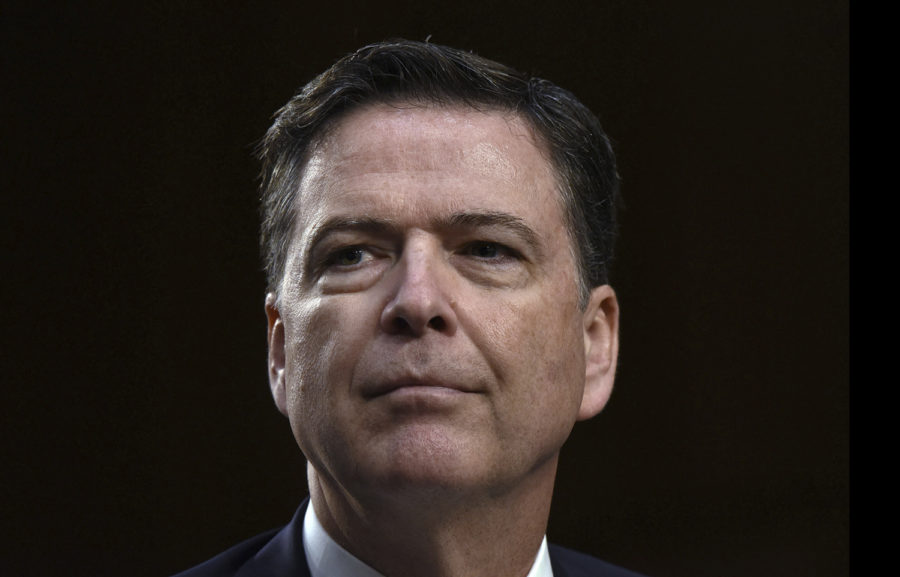If James Comey’s recent return to the public eye looks to you like a publicity campaign, you probably aren’t wrong — the former FBI chief’s book comes out today.
Comey’s foray into nonfiction writing has all the signs of a dramatic release. Even the book’s title, “A Higher Loyalty,” makes a teasing reference to President Donald Trump’s now-infamous demand for Comey’s “personal loyalty” last January.
He’s also been making the rounds on news networks. ABC aired a heavily edited, hour-long version of a five-hour interview between Comey and George Stephanopoulos Sunday night. By Monday morning, Trump’s Twitter feed and former FBI colleagues’ accounts were ablaze with outrage at Comey’s assertions, including that the president “will stain everyone around him,” and “had average-sized hands.”
While Comey has a role to play in aiding the Russia investigation, the dramatic parading in front of the media he’s done in the past several days has totally contradicted that goal. And if he continues to act the same way in the aftermath of his book’s release, he’ll be doing real damage to the movement to hold Trump accountable.
Beyond the allusions to the president’s anatomy, Comey’s conversation with Stephanopoulos touched on a number of other topics that might make things difficult for investigators looking into Russian interference and obstruction of justice going forward. Take, for example, Comey’s comment to Stephanopoulos that he took politics into consideration when sending a letter to Congress days before the 2016 election about the FBI’s investigation into Hillary Clinton’s email server.
“I was operating in a world where Hillary Clinton was going to beat Donald Trump,” he said. “I’m sure it was a factor.”
It’s hard to believe one of the nation’s top bureaucrats would use public polls to make a decision about whether or not to enforce the law. It’s even harder to believe he thought it would be acceptable to admit as much on national television when Trump’s supporters are already suspicious of the FBI’s motives. Comey’s choice to play up the decision to create dramatic tension is remarkably self-centered.
Overdramatic gestures have been the bane of the probe into Trump, Russia and the potential obstruction of justice. Critics dismiss the investigation without a second thought on the grounds its significance is overexaggerated. Comey’s book sales might benefit from him taking his feud with Trump to prime time television, but it ultimately hurts his own reputation and that of people actually working to find justice.
At the very outset of their talk, Stephanopoulos asked Comey why he had written a book at all. Comey replied he wanted “to be useful.” If he really wanted to be of use, he should have abstained from treating his book release like a media circus.
But now that’s done, he might prove useful in the future by staying silent.


